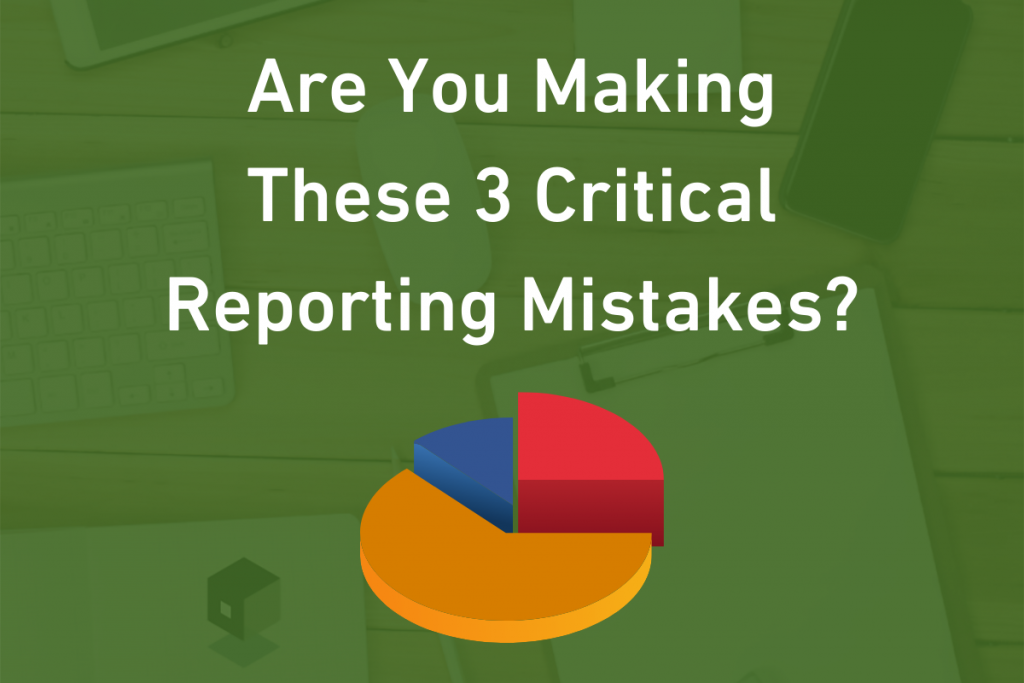Most marketers understand that reporting is a vital function of any marketing campaign, but it’s easy to slip into bad habits that undermine your efforts.
These are the top three critical reporting mistakes to avoid.
1. Not Reporting Often Enough
When it comes to marketing reports, “enough” is a very subjective term, dependent on the specifics of individual companies, campaigns and clients. However, if you’ve stuck to a default schedule of once per quarter–or even once per year–for every campaign, it may be time to rethink your habits.
Reporting too little encourages stakeholder apathy, saps the momentum from campaigns and makes it difficult to keep a clear eye on your progress.
In general, you should be reporting as often as you’re able to, and adjusting the content of the written reports to ensure participation and interest from the client or other stakeholders. In many cases, it’s better to report more often with fewer details than to “save up” for a larger exhaustive report a few times per year.
2. Too Many Manual Reporting Procedures
Along with the frequency of your reporting, the methods used to create the report are critical.
Many companies still use outdated manual procedures, and those efforts invariably involve an unnecessary amount of “hands-on” work. If you’re still relying on copy/pasting from spreadsheets and other obsolete methods, it’s time to rework your process.
Focusing on manual report creation costs too much time and money, both of which are better spent on directly improving your marketing campaigns to meet (and exceed) stakeholder expectations.
If you’re unable to speed things up with your current procedures, start exploring how Eloqua and Adobe integration can boost your automated capabilities, in hand with other marketing tools.
3. Not Focusing on KPIs
Today’s marketing tools provide a wealth of data, but don’t make the mistake of failing to curate it. Every marketing report should be tailored to its intended audience, and that nearly always means it needs to focus on KPIs or Key Performance Indicators. Which means, after the campaign or effort is complete, which metric (or metrics) will be most important to determine success?
Remember that to most clients and stakeholders, “diving into the weeds” on marketing results is as irrelevant to them as the technical details of their car’s engine. For stakeholders, marketing is a tool, and they’re primarily interested in what results that tool has achieved.
KPIs are key for a reason and should be treated that way. Instead of trying to prove the depth of your efforts with an encyclopedia of metrics minutia, use your reports to develop a coherent narrative for the KPIs.
With smart use of automated procedures and frequent reporting focused on KPIs, you can avoid the most common mistakes made by marketers.
Sources:
https://databox.com/marketing-agency-reporting-mistakes-that-sabotage-client-relationships
https://lseo.com/5-common-mistakes-client-reporting/
https://designstudio.com/reporting-mistakes-marketing-agencies/
https://www.visiture.com/blogs/biggest-mistakes-reporting-digital-marketing-clients/

